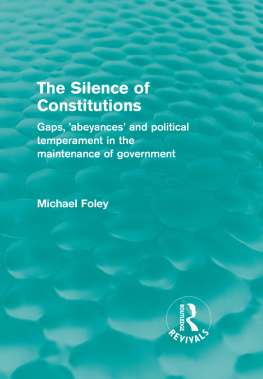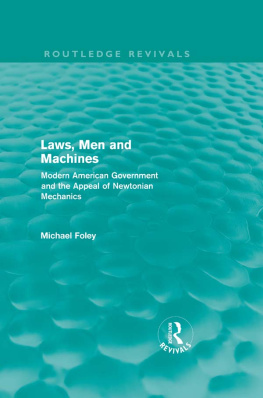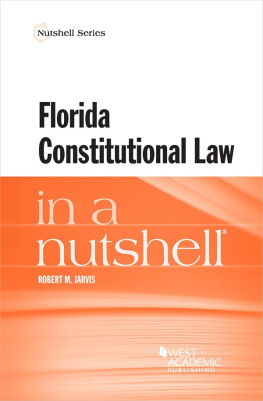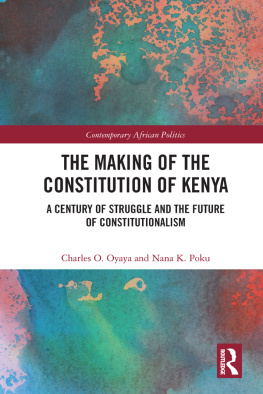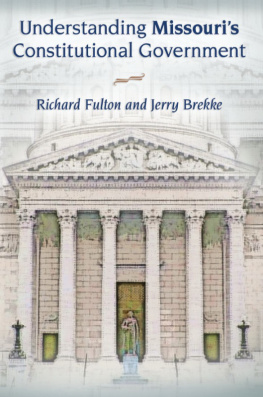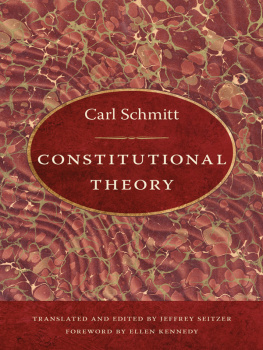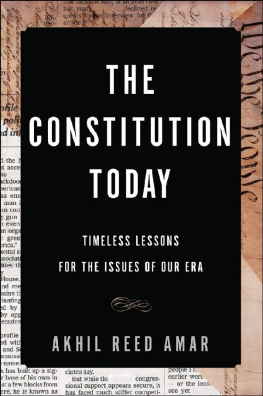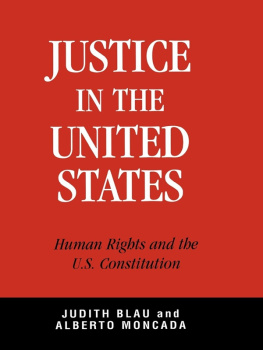Routledge Revivals
The Silence of Constitutions
First published in 1989, Michaels Foleys book deals with the abeyances present in both written and unwritten constitutions, arguing that these gaps in the explicitness of a constitution, and the various ways they are preserved, provide the means by which constitutional conflict is continually postponed. Abeyances are valuable, therefore, not in spite of their obscurity, but because of it.
The author illustrates his point with analyses of constitutional crises from both sides of the Atlantic. He examines the period leading up to the English civil war in the seventeenth century, and the imperial presidency episode under Richard Nixon in the late 1960s and 1970s in the USA. In both cases there was no constitutionally correct solution available but, as the author demonstrates, the political skill of the participants in their use of constitutional devices allowed the anomalies of the American system to survive in a way that contrasted markedly with the plight of Charles I and the Stuart constitution. This reissue of a landmark study will be welcomed by all those interested in the interpretation and construction of constitutional law.
Outstandingly subtle, important and wellargued-Professor Bernard Crick
First published 1989
by Routledge
This edition first published in 2011 by Routledge
2 Park Square, Milton Park, Abingdon, Oxon, OX14 4RN
Simultaneously published in the USA and Canada
by Routledge
711 Third Avenue, New York, NY 10017
Routledge is an imprint of the Taylor & Francis Group, an informa business
1989 Michael Foley
All rights reserved. No part of this book may be reprinted or reproduced or utilised in any form or by any electronic, mechanical, or other means, now known or hereafter invented, including photocopying and recording, or in any information storage or retrieval system, without permission in writing from the publishers.
Publishers Note
The publisher has gone to great lengths to ensure the quality of this reprint but points out that some imperfections in the original copies may be apparent.
Disclaimer
The publisher has made every effort to trace copyright holders and welcomes correspondence from those they have been unable to contact.
A Library of Congress record exists under ISBN: 0415030684
ISBN 13: 978-0-415-69625-8 (hbk)
ISBN 13: 978-0-203-14254-7 (ebk)
The silence of constitutions
Gaps, abeyances and political temperament in the maintenance of government
Michael Foley
First published 1989 by Routledge
11 New Fetter Lane, London EC4P 4EE
29 West 35th Street, New York, NY 10001
1989 Michael Foley
Phototypeset in lOpt Times by
Mews Photosetting, Beckenham, Kent
Printed and bound in Great Britain by
Biddies Ltd, Guildford and Kings Lynn
All rights reserved. No part of this book may be reprinted or reproduced or utilized in any form or by any electronic, mechanical, or other means, now known or hereafter invented, including photocopying and recording, or in any information storage or retrieval system, without permission in writing from the publishers.
British Library Cataloguing in Publication Data
Foley, Mchael, 1948-
The silence of constitutions: gaps, abeyances and political
temperament in the maintenance of government
1. Constitutions
I. Title
342.22
ISBN 0 415 03068 4
Library of Congress Cataloging-in-Publication Data
Foley, Michael, 1948-
The silence of constitutions: gaps, abeyances and political temperament in the maintenance of government / Michael Foley
p. cm.
Includes index.
ISBN 0 415 03068 4
1. United States Constitutional law Interpretation and construction. 2. Great Britain Constitutional law Interpretation and construction. I. Title.
K3165.F65 1989
342.7302 dc 19
[3473022]
89-3458.
CIP
Preface
This book acknowledges that the traditional distinction between written and unwritten constitutions is in many respects analytically redundant. Nevertheless, the customary dismissal of the old typology risks overlooking the possible presence of other dimensions of constitutional study that may be deceptively analogous to the old classification, but which retain an integrity and an interpretive value of their own. This study posits the existence of an unwritten dimension in constitutions that is separate in scale and nature to the standard notion of unwritten conventions. In contrast to conventions which are determinable and amenable to description, constitutional abeyances represent a form of tacit and instinctive agreement to condone, and even cultivate, constitutional ambiguity as an acceptable strategy for resolving conflict. The term constitutional abeyance was chosen because it conveys both the element of dormant suspension implicit in what appear to be quite explicit constitutional arrangements, and the attitudinal habits of wilful neglect, protective obfuscation, and complicity in non-exposure, all of which are required to preserve the effectiveness of abeyances in deferring conflict and containing unresolved points of issue.
Abeyances refer to those constitutional gaps which remain vacuous for positive and constructive purposes. They are not, in any sense, truces between two or more defined positions, but rather a set of implicit agreements to collude in keeping fundamental questions of political authority in a state of irresolution. Abeyances are, in effect, compulsive hedges against the possibility of that which is unresolved being exploited and given meanings almost guaranteed to generate profound division and disillusionment. Abeyances are important, therefore, because of their capacity to deter the formation of conflicting positions in just those areas where the potential for conflict is most acute. So central are these abeyances, together with the social temperament required to sustain them, that when they become the subject of heightened interest and subsequent conflict, they are not merely accompanied by an intense constitutional crisis, they are themselves the essence of that crisis.
In this respect, constitutional crises are of great value as they reveal in dramatic form what before had been concealed in agreeable ambiguity. It is for this reason that Part II of the study is concerned with two constitutional crises of such severity that the internal substructure of the respective constitutions were lain open to corrosive public scrutiny thereby revealing the reality of those inner contradictions and anomalies that had hitherto been shrouded in protective obscurity. The period leading up to the English civil war in the seventeenth century and the imperial presidency episode of the late 1960s and early 1970s in the United States were the two crises selected to demonstrate the inner properties of such abeyances.
By reputation the Stuart constitution was a moribund arrangement of government containing an unsustainable mixture of royal absolutism, Parliamentary power and common law rights. On closer inspection, however, it is clear that there existed a highly developed and sophisticated constitutional order much of whose extraordinary resilience depended upon its system of abeyances, by which the logically irreconcilable issue of final sovereignty was habitually and effectively evaded by an accustomed acquiescence in the needlessness of constitutional exactitude.

